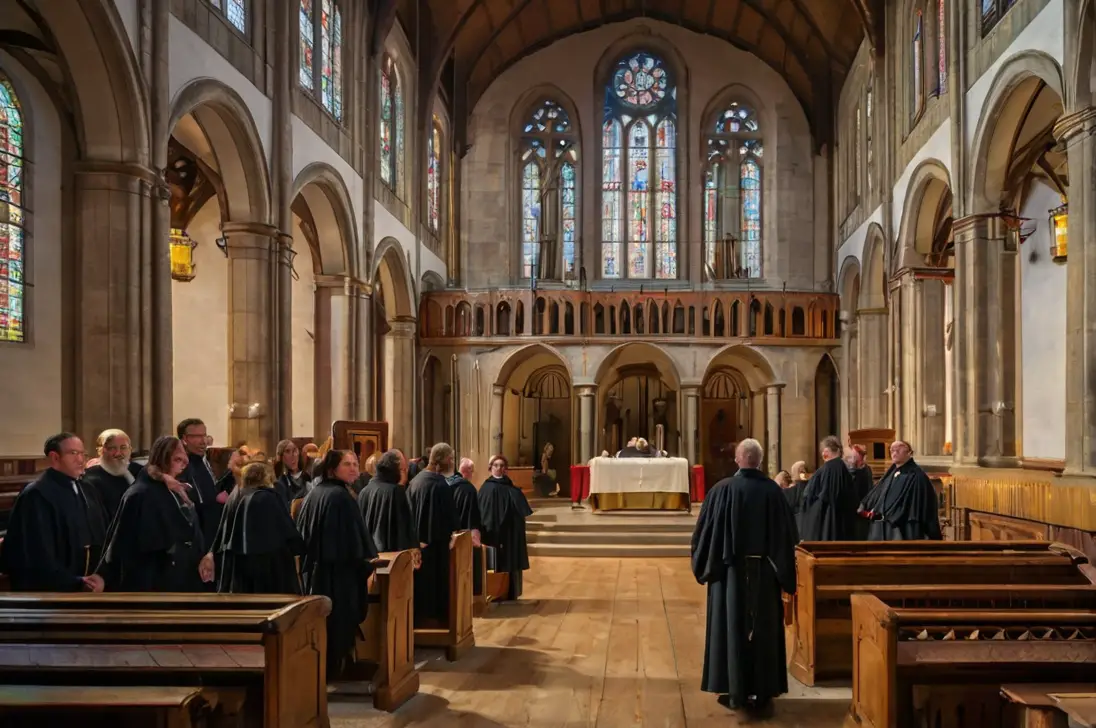
The Protestant Reformation, a pivotal movement in European history, fundamentally transformed the religious, political, and social landscape of the continent.
Emerging in the early 16th century, the Reformation was a response to various grievances and demands for change within the Catholic Church.
Understanding the causes of the Protestant Reformation involves examining the deep-seated religious discontent, political and social factors, and the key figures who propelled this movement forward.
This blog post delves into these aspects, providing a comprehensive overview of why the Reformation occurred.
Religious discontent
The Protestant Reformation, a major movement in the 16th century, was fueled by widespread dissatisfaction with the Catholic Church.
Here’s a detailed look at the key issues that led to this religious upheaval:
Corruption and abuses in the church
By the early 1500s, the Catholic Church was deeply involved in political and economic matters, which led to significant corruption.
Many clergy members engaged in unethical practices such as:
- Simony: Selling church offices and positions for money.
- Nepotism: Favoring relatives by giving them important church roles.
- Pluralism: Holding multiple church offices at once, often neglecting their duties.
These practices eroded the spiritual authority of the Church and led to a loss of trust among the faithful.
People felt that the Church was more focused on wealth and power than on spiritual guidance and religious duties.
- Read also: Unraveled: Causes of European Colonization Explored
- Read also: What caused the Fall of Babylon? Unveiling the Factors
The sale of indulgences
The sale of indulgences was another major source of discontent.
Indulgences were certificates sold by the Church that promised to reduce punishment for sins, essentially offering a way to buy one’s way out of purgatory.
Johann Tetzel, a Dominican friar, was especially notorious for selling indulgences in Germany.
He claimed that indulgences could free souls from purgatory, which many saw as a blatant exploitation of the faithful.
This practice outraged those who believed that salvation and forgiveness could not be bought with money.
Calls for Reform
Many people within the Church recognized the need for reform.
The Renaissance, with its emphasis on returning to the original sources (ad fontes), inspired scholars to study the Bible and early Church writings in their original languages.
This led to a growing awareness of the differences between the Church’s current practices and its original teachings.
Humanists like Erasmus of Rotterdam were vocal critics of the Church’s excesses.
In his work “In Praise of Folly,” Erasmus called for a return to simple, pious Christianity and criticized the Church’s focus on wealth and power.
His ideas, along with those of other reformers, encouraged a movement towards reforming the Church from within.

Political and Social Factors
The Rise of nation-states
During this time, nation-states were emerging across Europe, marking a shift away from feudalism where power was decentralized among lords and vassals.
Monarchs and princes saw an opportunity to strengthen their authority by challenging the Church’s dominance.
By supporting the Reformation, they could diminish the Pope’s influence and seize control over church lands and wealth within their territories.
This political backing was crucial in the spread of Protestant ideas and the establishment of new religious practices.
Economic factors
Economic changes also played a significant role in fostering discontent with the Catholic Church.
The growth of commerce and the rise of a wealthy merchant class brought about new economic dynamics.
Many merchants and urban dwellers resented the heavy taxes imposed by the Church and its control over economic activities.
The Church’s involvement in financial matters, including banking and trade, further exacerbated tensions.
Additionally, Johannes Gutenberg’s invention of the printing press around 1440 allowed for the mass production of books and pamphlets, including Martin Luther’s 95 Theses.
This technological advancement enabled the rapid dissemination of Reformation ideas and criticisms of the Church, fueling widespread debate and dissent.
Social unrest
Social unrest, particularly among the peasantry and lower classes, also contributed to the Reformation movement.
Peasants faced harsh living conditions, high taxes, and feudal oppression under the ruling elites and Church authorities.
The Reformation’s message of spiritual equality and justice resonated deeply with their desire for social change.
The Peasants’ War in Germany (1524-1525) was a significant uprising influenced by Reformation ideas, although it primarily focused on economic grievances and social inequalities.
This uprising highlighted the broader discontent and widespread demand for reforms across all levels of society.

Key Figures of the Reformation
Martin Luther
Martin Luther, a German monk and theologian, is often seen as the initiator of the Reformation.
In 1517, he famously protested against the Catholic Church’s sale of indulgences by nailing his Ninety-Five Theses to the door of the Wittenberg Castle Church.
This act challenged the Church’s teachings on forgiveness and salvation, emphasizing instead the importance of faith and scripture.
Luther’s translation of the Bible into German made religious texts accessible to ordinary people, promoting a personal relationship with God through direct reading of scripture.
John Calvin
John Calvin, a French theologian, played a crucial role in shaping Reformed theology, particularly in Switzerland.
His work “Institutes of the Christian Religion” provided a systematic explanation of Protestant beliefs, emphasizing concepts like predestination (the idea that God has already determined who will be saved) and the sovereignty of God over human affairs.
Calvin’s teachings stressed the importance of a disciplined Christian life and the authority of scripture in guiding faith and practice.
Huldrych Zwingli
Huldrych Zwingli, a Swiss reformer contemporary to Calvin, focused on returning Christianity to its early, simpler roots.
In Zurich, Switzerland, he advocated for reforms such as removing religious images from churches, abandoning the Catholic mass ceremony, and promoting a worship style based directly on biblical teachings.
Zwingli’s efforts contributed to the development of Reformed Protestantism and influenced other reform movements across Europe.
Henry VIII
In England, the Reformation took a unique course under King Henry VIII.
Motivated by personal and political reasons, Henry sought to annul his marriage to Catherine of Aragon, who had not borne him a male heir.
When the Pope refused to grant the annulment, Henry broke away from the Catholic Church and declared himself the supreme head of the Church of England in the 1530s.
This separation from Rome allowed Henry to control religious affairs in England, dissolve monasteries, and seize church lands, thereby consolidating his power and wealth.

- Read also: The Renaissance Era’s Impact on Science Advancements
- Read also: Renaissance Invention Timeline: Innovations That Transformed History
Conclusion
The Protestant Reformation was a complex movement driven by a combination of religious discontent, political and social factors, and influential figures.
It challenged the authority of the Catholic Church and reshaped the religious landscape of Europe.
Understanding the causes of the Reformation helps us appreciate the profound impact it had on the course of history.



